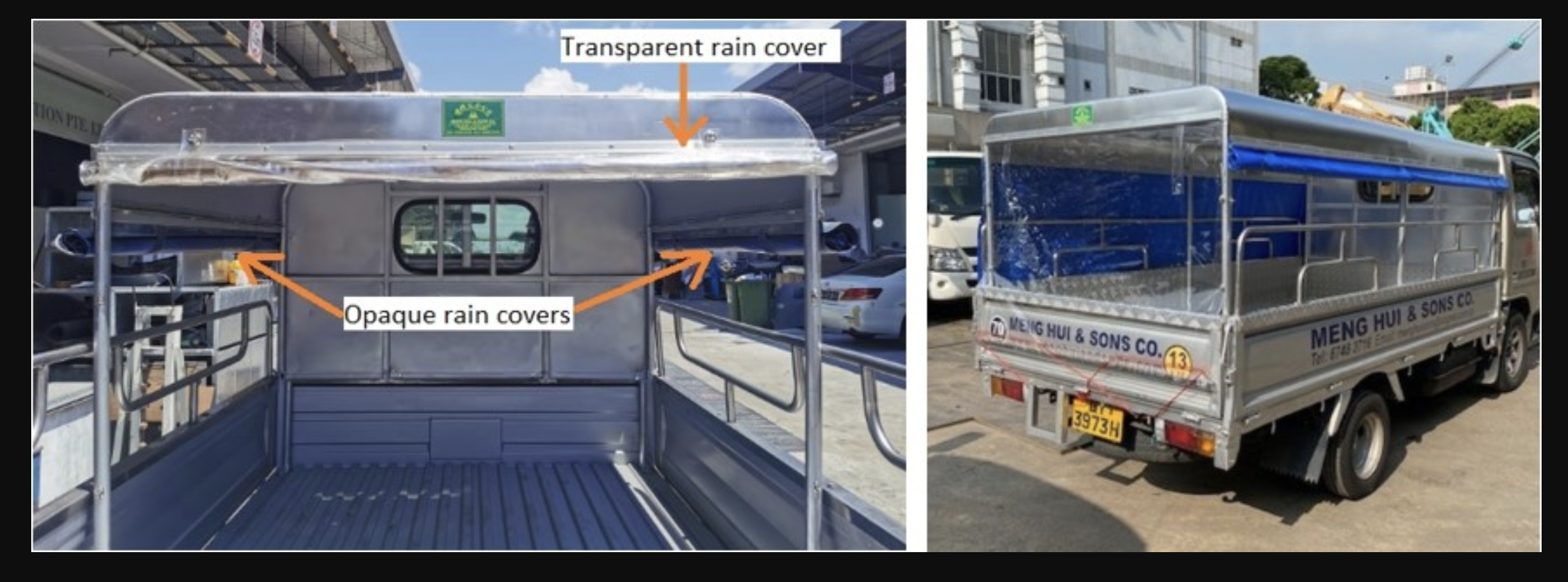SINGAPORE – As of Jan 1 (Sunday), new requirements have been in place for transporting workers in lorries, a longstanding issue that has concerned many Singaporeans.
In 2021, after two accidents within five days involving lorries ferrying migrant workers claimed the lives of two workers and sent over a dozen others to the hospital, over 40,000 people signed a petition asking the Land Transport Authority to make safe transport mandatory.

Photos circulating of migrant workers sitting in an open lorry in the pouring rain were also spread widely on social media.

On Dec 31, the Ministry of Manpower, Ministry of Transport, LTA, Singapore Police Force, and the Building and Construction Authority issued an advisory outlining new requirements and recommendations for transport.
Under the Road Traffic Act, lorries that are newly registered must be fitted with rain covers on all non-enclosed sides of the canopy. At least one side of the canopy is required to be transparent.
Rain covers are required for in-use light lorries from July 1 of this year and for in-use heavy lorries from Jan 1, 2024.

Under the Workplace Safety and Health Act (WSH Act), a dual-role driver (an individual required by the employer to drive a lorry with workers in the rear deck but for whom driving the lorry is not his primary work) should be given at least a 30-minute rest period if he has worked for at least six hours on his shift immediately before driving the workers.
Employers should also designate a “vehicle buddy” who will sit beside the driver in the cabin while the driver is driving workers in lorry rear decks.
They should also orient the “vehicle buddy” that his role is to ensure the driver is alert and able to drive safely at all times.
Under the Employment Act, drivers of lorries with workers riding in the rear decks should not be made to work for more than 12 hours a day. This should include overtime, driving, or any other work activities.
Furthermore, employers are prohibited from deducting from the salary of drivers when they are behind schedule; nor can they make workers consent to this type of deduction.
“To improve workers’ safety, employers should consider using other modes of transportation (e.g. buses) where possible. Where it is not practical to use alternative modes of transportation, employers should ensure the safety of workers travelling in lorries by adopting the recommended practices to ensure safety of the driver and all passengers in the lorry,” the advisory, which can be found in full here, added. /TISG

